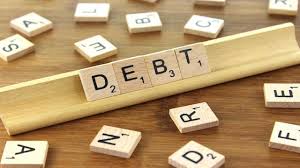
Heavy speeding by the United Kingdom government to support the economy hit the by the novel coronavirus pandemic has resulted in its government debt to touch more than £2 trillion for the first time.
The current debt figure of the country is now equal to the value of everything that is produced in the UK in a year.
The Office for National Statistics (ONS) said that in July the country’s total government debt was at £2.004tn which as £227.6bn more than last year.
The economic situation in UK could get worse before it improves, economists have warned.
The ONS said since the 1960-61 financial year, this is the first occasion that the national debt of UK has been above 100% of gross domestic product (GDP).
However the borrowing figure, the difference between spending by the government and its tax income, of the government in July at £26.7bn which was lower than the revised June figure of £29.5bn.
It was the fourth highest borrowing in any month since records began in 1993. The three higher figures were the previous three months.
The borrowing figure in July was "another huge sum and pushes borrowing in the year to date to £150.5bn", said Ruth Gregory, senior UK economist at Capital Economics.
"That is close to the deficit for the whole of 2009-10 of £158.3bn, which was previously the largest cash deficit in history, reflecting the extraordinary fiscal support the government has put in place to see the economy through the crisis."
"This crisis has put the public finances under significant strain as we have seen a hit to our economy and taken action to support millions of jobs, businesses and livelihoods. Without that support, things would have been far worse. Today's figures are a stark reminder that we must return our public finances to a sustainable footing over time, which will require taking difficult decisions," said Chancellor Rishi Sunak.
Even though the sum of £2 trillion is a very large one, given the current circumstances, it was more or less accepted that UK’s national debt would surpass that level.
With people and businesses earning and spending less because of the pandemic, the government’s tax revenue has been hit hard. And spending on economy supporting schemes such as the one on furlough, by the government has only gone up. That has resulted in a rapid increase in debt.
However the cost of borrowing for the government – the rate of interest it has to pay for the borrowing, is very low. And at the same time, some of the additional borrowing made by the government ultimately will flow into the Bank of England as it has been buying government debt (known as gilts) in the financial markets under its quantitative easing (QE) programme.
It was "not really a surprise" that the government was borrowing a lot of money considering the size of the programs that it is implementing aimed at supporting people hit by the pandemic, said Carl Emmerson, deputy director of the Institute for Fiscal Studies.
(Source:www.bbc.com)
The current debt figure of the country is now equal to the value of everything that is produced in the UK in a year.
The Office for National Statistics (ONS) said that in July the country’s total government debt was at £2.004tn which as £227.6bn more than last year.
The economic situation in UK could get worse before it improves, economists have warned.
The ONS said since the 1960-61 financial year, this is the first occasion that the national debt of UK has been above 100% of gross domestic product (GDP).
However the borrowing figure, the difference between spending by the government and its tax income, of the government in July at £26.7bn which was lower than the revised June figure of £29.5bn.
It was the fourth highest borrowing in any month since records began in 1993. The three higher figures were the previous three months.
The borrowing figure in July was "another huge sum and pushes borrowing in the year to date to £150.5bn", said Ruth Gregory, senior UK economist at Capital Economics.
"That is close to the deficit for the whole of 2009-10 of £158.3bn, which was previously the largest cash deficit in history, reflecting the extraordinary fiscal support the government has put in place to see the economy through the crisis."
"This crisis has put the public finances under significant strain as we have seen a hit to our economy and taken action to support millions of jobs, businesses and livelihoods. Without that support, things would have been far worse. Today's figures are a stark reminder that we must return our public finances to a sustainable footing over time, which will require taking difficult decisions," said Chancellor Rishi Sunak.
Even though the sum of £2 trillion is a very large one, given the current circumstances, it was more or less accepted that UK’s national debt would surpass that level.
With people and businesses earning and spending less because of the pandemic, the government’s tax revenue has been hit hard. And spending on economy supporting schemes such as the one on furlough, by the government has only gone up. That has resulted in a rapid increase in debt.
However the cost of borrowing for the government – the rate of interest it has to pay for the borrowing, is very low. And at the same time, some of the additional borrowing made by the government ultimately will flow into the Bank of England as it has been buying government debt (known as gilts) in the financial markets under its quantitative easing (QE) programme.
It was "not really a surprise" that the government was borrowing a lot of money considering the size of the programs that it is implementing aimed at supporting people hit by the pandemic, said Carl Emmerson, deputy director of the Institute for Fiscal Studies.
(Source:www.bbc.com)





